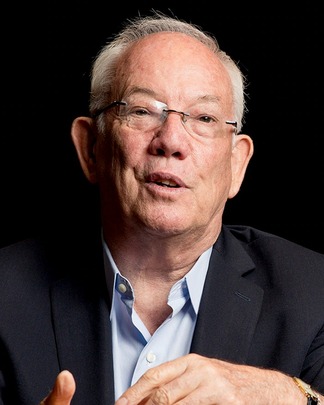
W. Brian Arthur
W. Brian Arthur is a pioneering economist whose research on increasing returns and complexity theory has profoundly influenced technology, economics, and innovation. His groundbreaking work on increasing returns provided a paradigm-shifting explanation for why certain high-tech companies achieve runaway success, while his studies on complexity explore how patterns and structures self-organize in economies and systems. Arthur is an External Professor at the Santa Fe Institute, a Visiting Researcher at SRI International, and a Visiting Researcher at PARC’s Intelligent Systems Laboratory in Palo Alto. He previously served as the Morrison Professor of Economics and Population Studies at Stanford University. A prolific author, Arthur has published numerous papers and books, including The Nature of Technology and Complexity and the Economy.
W. Brian Arthur Professional Experience / Academic History
Professional Experience
-
External Professor
-
Morrison Professor of Economics and Population Studies
Academic History
-
Ph.D., Operations Research
-
M.A., Economics
-
M.A., Mathematics
-
M.A., Operational Research
-
B.Sc., Electrical Engineering
CURRENT AFFILIATIONS
Member, Founders Society of the Sante Fe Institute
External Professor, Sante Fe Institute
Science Board Member, Sante Fe Institute
Member, Institute for Advanced Study Amsterdam
INCREASING RETURNS & COMPLEXITY THEORY
Arthur pioneered the modern study of positive feedback or increasing returns in the economy, which has become the basis of our understanding of the high-tech economy.
He has been described by Fortune Magazine, as “one of the country’s leading economic thinkers,” and he is best known for his pioneering work on the operation of high-technology markets.
He led a group at the Santa Fe Institute to develop an alternative approach to economics: complexity economics.
Complexity economics assumes actors in the economy do not necessarily face well-defined problems or use super-rationality. They explore, try to make sense, react and re-react to the outcomes they together create.
RECOGNITIONS